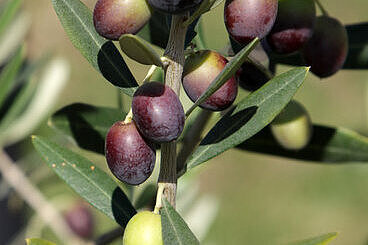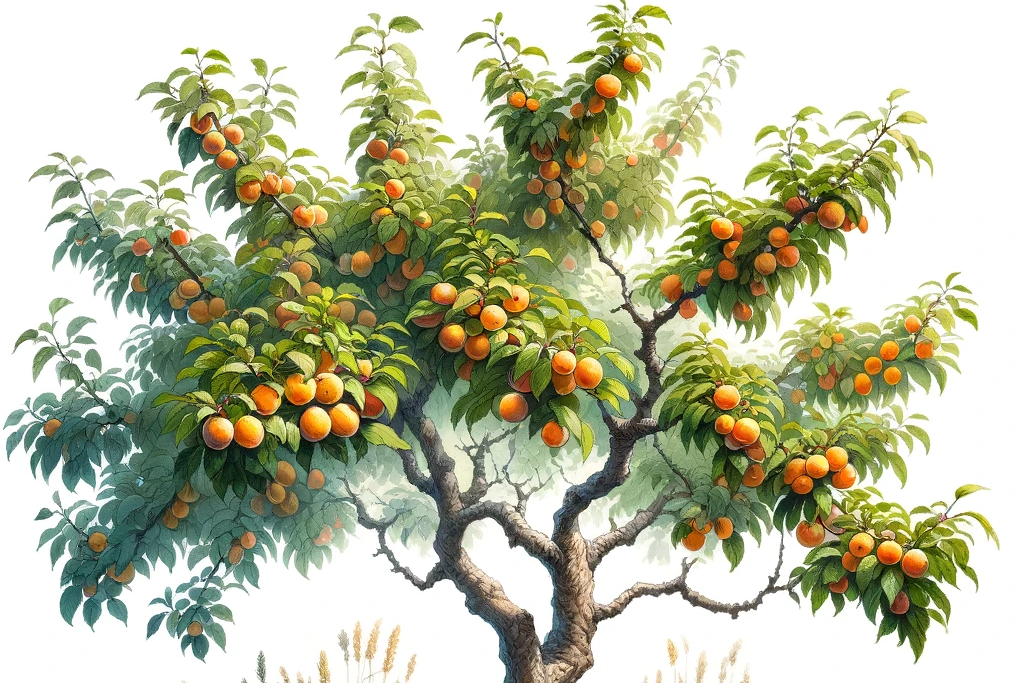Pomegranate tree

What is the pomegranate tree?
The pomegranate tree is a fruit-bearing plant that originated in the Middle East and is now cultivated worldwide in tropical to subtropical climates. It is characterized by its bright red fruits, which are filled with hundreds of edible seeds embedded in juicy, sweet and sour pulp. In addition to its culinary value, the pomegranate has been prized for centuries for its medicinal properties, including its antioxidant, anti-inflammatory and heart health benefits.
Benefits of the pomegranate tree for dogs
Antioxidant power
Pomegranates are rich in antioxidants, particularly tannins and anthocyanins, which can help neutralize free radicals in the body. For dogs, this means protection at a cellular level, which promotes overall health and reduces the risk of chronic disease.
Supporting heart health
Studies have shown that regular consumption of pomegranate juice can have positive effects on heart health, including improving blood circulation and lowering blood pressure. These properties may also be beneficial for dogs, especially those with heart problems.
Digestive benefits
The fiber found in pomegranate can support dogs' intestinal health by promoting regular digestion and minimizing the risk of constipation.
Anti-inflammatory effect
The anti-inflammatory properties of pomegranate can provide relief for dogs with conditions such as arthritis or skin inflammation and help to control inflammation in the body.
Disadvantages of the pomegranate tree for dogs
Risk of stomach upset
Although the fruit of the pomegranate tree offers many health benefits, the high acid content can cause stomach upset or diarrhea in some dogs, especially if consumed in excess.
Choking hazard
The hard seeds of the pomegranate can be a choking hazard for smaller dogs or those who tend to gulp their food. It is important to remove the seeds or serve the pomegranate in a form that is safe for the dog.
Potential toxicity
Parts of the pomegranate tree, such as the bark and leaves, contain alkaloids that can be toxic to dogs. It is crucial to feed only the fruit in appropriate amounts and ensure that the dog does not have access to the potentially harmful parts of the plant.
The pomegranate tree has fascinating benefits for both human and animal nutrition. Its fruit, eaten in moderation, can be a healthy addition to your dog's diet and contribute to their well-being. With the right approach, the pomegranate can be a valuable ingredient in your dog's diet, promoting health and vitality.
If you notice any signs of hypersensitivity or poisoning in your dog, you should see your vet immediately. We are not a substitute for a vet, but we try to be as accurate as possible. Every dog reacts differently and we recommend you get a second opinion or consult your vet if in doubt.
Stay healthy and take good care of your four-legged friend!😊
Similar to Pomegranate tree
The common fig (Ficus carica) is a fruit that grows on the tree of the same name, which belongs to the mulberry family (Moraceae). Originally from the Middle East, the fig has spread around the...
Lemon trees (Citrus limon) are not only known for their juicy fruit, but also for their essential oils, which are often used in cleaning products and fragrances. While these properties can be...
The olive tree belongs to the olive tree family (Oleaceae) and is one of the oldest cultivated plants in the world. It originally comes from the Middle East and was cultivated in the Mediterranean...
The apricot tree (Prunus armeniaca) is a fruit tree from the Rosaceae family that is known for its edible fruit. The apricot, the fruit of the tree, is rich in vitamins, minerals and fiber. While...



